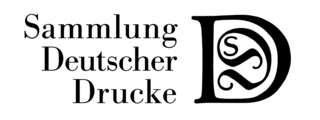Deutsche Nationalbibliothek
The German National Library is entrusted with the task of collecting, permanently archiving, bibliographically classifying and making available to the general public all German and German-language publications from 1913, foreign publications about Germany, translations of German works, and the works of German-speaking emigrants published abroad between 1933 and 1945.
It was preceded by several institutions: these were the Deutsche Bücherei founded in Leipzig in 1912, the Deutsche Bibliothek Frankfurt am Main established in 1946 and the Deutsches Musikarchiv founded in Berlin in 1970. The latter has been based in Leipzig since December 2010. The reunification of Germany saw these facilities amalgamated into a single institution. In 2006 the legal brief of the library was expanded and it was given a new name: Deutsche Nationalbibliothek (German National Library).
Each location is allocated certain principal tasks. The historic Leipzig library houses the Deutsche Buch- und Schriftmuseum, the Deutsche Musikarchiv, the Sammlung Exil-Literatur 1933-1945 and the Anne-Frank-Shoah-Bibliothek.
The Frankfurt site is responsible for developing information and communication technology, which includes setting up and running the central database. It handles the production, marketing and distribution of the national bibliographic services. Frankfurt is also home to the Deutsches Exilarchiv 1933-1945.
At the end of 2013 the German National Library held a total of 28.7 million media units.
The period from 1913
The Law regarding the German National Library (DNBG) which came into force on 22 June 2006 (BGBl I p. 1338) lays down the duties and responsibilities of the library. The Law distinguishes between media publications in physical form, conventional printed publications, and media publications in non-physical form, i.e. representations in public networks. This is in response to changes in the publishing world and to increasing demands from users. The Legal Deposit Directive clarifies the legal right of the German National Library to be sent, free of charge and without a specific request being issued, publications falling within the collection brief, while exempting those which are of no public interest. Basically, the Law and the Directive lay down what the German National Library is to collect.
The legally defined collection mandate sees the German National Library taking over the work and pursuing the goals of the Arbeitsgemeinschaft Sammlung Deutscher Drucke for the period from 1913. It can now continue this work in its new, institutionally secured form. Objects to be collected include printed media publications such as books, cartographic works, standards, journals and newspapers, dissertations and doctoral theses, loose-leaf and part works, sheet music and media publications on electronic data carriers, e.g. sound recordings and films in which music features prominently.
Cataloguing
Most of the holdings of the German National Library are electronically indexed. Anyone can conduct a free, internet-based search in the database of the Deutsche Nationalbibliografie at https://portal.dnb.de. Scanned tables of contents have been added to the bibliographic data of a large proportion of the works received since 2008.
Descriptive cataloguing of the media publications follows the specifications in the international cataloguing standard »Resource Description and Access« (RDA); subject cataloguing is governed by the »Rules for the subject heading catalogue« (RSWK) and the »Dewey Decimal Classification« (DDC) system. The German National Library also uses the universal authority file GND; it is actively involved in the creation and maintenance of it.
Special mention should be made of the two digitisation projects of the Deutsches Exilarchiv 1933 - 1945: Exilpresse digital. Deutsche Exilzeitschriften 1933-1945 and Jüdische Periodoka in NS-Deutschland.These two projects involved the digitisation, cataloguing and online provision of more than 50 journals and newspapers. Regarding the selection of titles, a great deal of importance was attached to obtaining a broad spectrum of examples (politico-cultural and literary journals, academic journals, journals published by all the major political parties in exile and ideological journals). The digitised versions are available for use at the premises of the German National Library in Leipzig and Frankfurt am Main.
Contact:
Constanze Schumann
Head of Department Acquisition and Descriptive Cataloguing
Deutsche Nationalbibliothek
Deutscher Platz 1
04103 Leipzig
Germany
Phone: +49 341 2271-416
